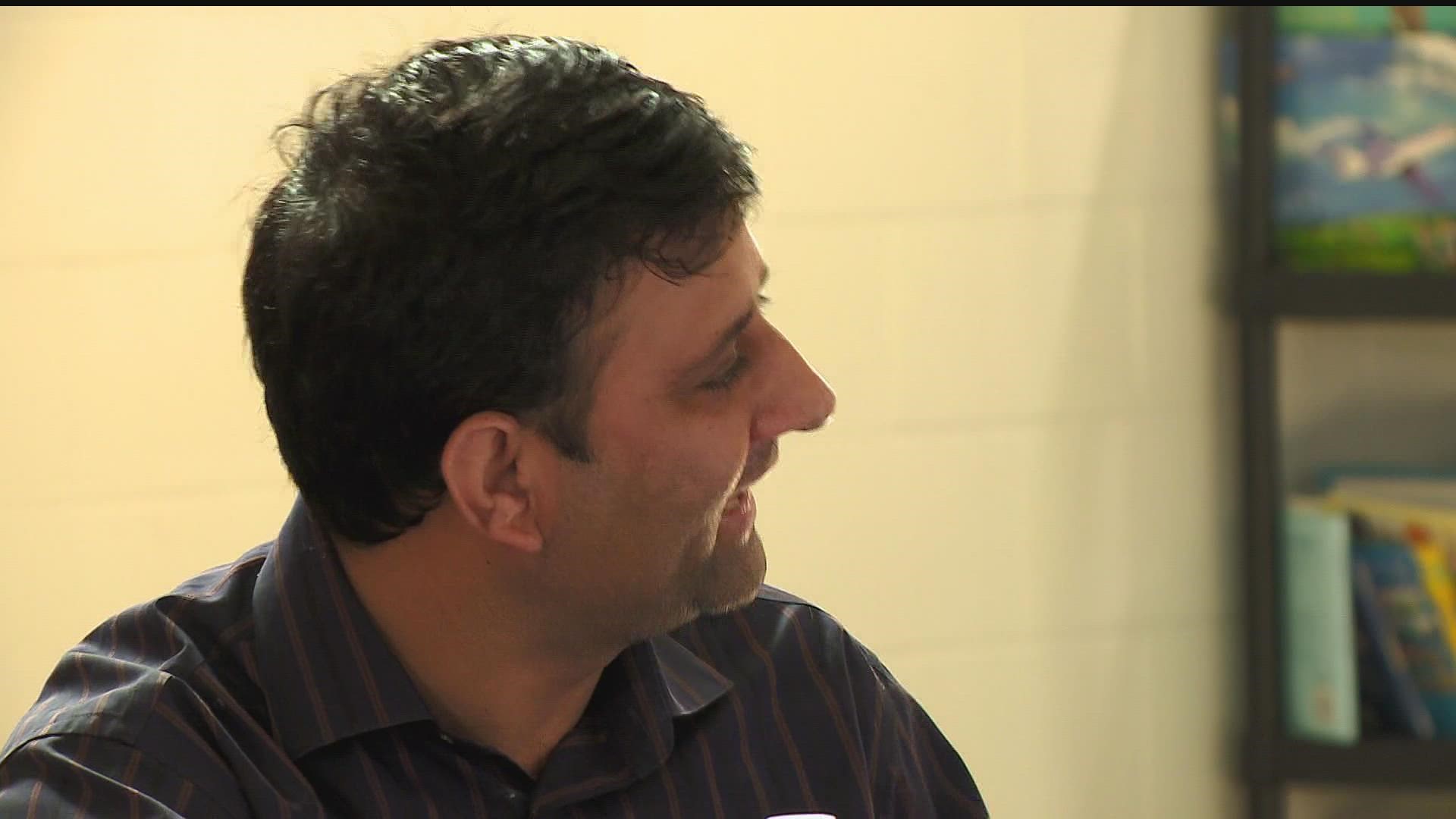BROOKLYN PARK, Minn. — After seeing the outpouring of support for Afghanistan refugees in Minnesota, Masihullah Sahil says the last year has made him proud to be a Minnesotan.
"Minnesotans came out, regardless of color, race, religion and did things way more than we could ever imagine," Sahil said. "And now I know why they call it 'Minnesota nice.'"
Sahil came to the U.S. from Afghanistan nine years ago thanks to a Special Immigrant Visa, which he obtained after helping the US military effort for a decade. But the chaotic US withdrawal in 2021, still forced him to take drastic action in an attempt to protect his family.
"When the country collapsed, my family, they had to flee our home," Sahil said. "If you are an enemy of someone (with the Taliban), they are not just going to target you, they are going to target your whole family. I was just desperate. I could not see my family living in that situation back in Afghanistan. I just decided to just go. I flew back to Afghanistan in February of this year."
After making it back into the country, Sahil says he spent three months in hiding from the Taliban, as he worked with the State Department to evacuate his parents to Minnesota.
Though it proved successful, he is still working to reunite with his siblings.
"My brother, who worked with American forces and with the Afghan government, is on the run," Sahil said. "He can't even go to his own place, his own home."
Sahil took his concerns directly to Minnesota Representative Dean Phillips on Monday. The Minnesota Congressman visited a free marketplace operated by Alight, which offers free home essentials to help with the resettlement process.
Sahil has been working as a liaison to the Afghan community for the Minnesota Department of Employment and Economic Development. He told Phillips that many of the 1,300 hundred Afghans in Minnesota are also struggling with uncertain immigration status and family separations following the chaotic evacuation.
"Sometimes the waiting time is taking months and months," Sahil said. "Please, if there is anything you can do to reunite these families, because we are a victim, my family is facing it, and I see my mom, every single day crying for the kids left in Afghanistan and this is just a small sample that every family faces in Minnesota.
I have seen families in our community whose mother has been left in Afghanistan and a father with a four year old kid, are here. I have seen kids, I know about five or six kids - from ages six to twelve - they are here, but their parents are not here."
Phillips says he's grateful for Sahil and the local groups who have helped families navigate as best as they can, but he says it will take bipartisan work in Washington to fulfill a promise we made to those left behind.
"What we're trying to do now in Congress is try to fix, at least incrementally, a system that has been terribly disadvantageous to Afghans in particular, particularly those who helped our mission," Phillips said. "But until leaders in both our statehouses and our Congress get together, and set aside the politics, it's going to be a challenge."
In the meantime, Sahil said he will put his faith in community and hope for the best in Washington.
"I believe that hope is the only thing we can have," he said. "But I'm not optimistic, not really."
Recent estimates indicate there are still more than 70,000 thousand Afghans stuck in the country, waiting for answers about their Special Immigrant Visa applications. Meanwhile, there are thousands more who did make it into the US, but have an uncertain immigration status known as parole.
A bipartisan group of six senators are backing legislation known as the Afghan Adjustment Act, which would give those in the US a chance to transition to permanent residency. Phillips has co-sponsored a companion bill in the House.
Watch more local news:
Watch the latest local news from the Twin Cities in our YouTube playlist:

